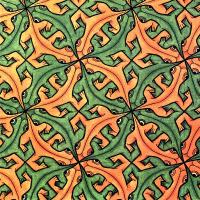Сообщений: 29
Язык: English
erinja (Показать профиль) 19 декабря 2013 г., 21:01:08
You occasionally hear "devintus" and "povintus" but it doesn't go much beyond that.
Instead of "farintus", for example, you might hear "devintus fari". But for the most part people get on just fine without these forms (and even without the 'unreproachable' version of the forms, "mi estus devinta...", etc)
sudanglo (Показать профиль) 19 декабря 2013 г., 23:17:33
Kompreneble mi estas povinta kalkuli pli precize, sed ....
RiotNrrd (Показать профиль) 20 декабря 2013 г., 1:58:56
kaŝperanto:Pretty much. Nobody uses them because nobody (else) uses them.
I suppose it is more of a catch-22; nobody uses them because nobody studies them enough to catch their meaning easily in conversation.
I wouldn't bother trying to change that. They aren't the sort of thing that will catch on.
sudanglo (Показать профиль) 20 декабря 2013 г., 10:43:25
The conditional participles are also very interesting, "La reĝunto" -> "The would-be king"I don't think this interpretation is correct.
A would-be king is the past version of a wanna-be king.
Reĝunto seems to me to mean more a person who would reign (or would have reigned) in different circumstances.
kaŝperanto (Показать профиль) 20 декабря 2013 г., 21:25:55
sudanglo:Hm, to me the would-be king and and person who would have been king/ would have reigned are all about the same. At any rate, the Wikipedia article uses the "would-be president" example to explain the conditional participle. Al Gore was the would-be president, because he would have been president if he had one.The conditional participles are also very interesting, "La reĝunto" -> "The would-be king"I don't think this interpretation is correct.
A would-be king is the past version of a wanna-be king.
Reĝunto seems to me to mean more a person who would reign (or would have reigned) in different circumstances.
jismith1989 (Показать профиль) 20 декабря 2013 г., 21:35:11
kaŝperanto:No, "would-be" just describes someone who attempts to become something or wants to become something or professes to be something (that he probably isn't), so Al Gore was a would-be President, but if you wanted to become President, you'd be a would-be President too. The past tense is given by the verb "was" in the sentence "Al Gore was a would-be President", not the "would-be" part.sudanglo:Hm, to me the would-be king and and person who would have been king/ would have reigned are all about the same. At any rate, the Wikipedia article uses the "would-be president" example to explain the conditional participle. Al Gore was the would-be president, because he would have been president if he had one.The conditional participles are also very interesting, "La reĝunto" -> "The would-be king"I don't think this interpretation is correct.
A would-be king is the past version of a wanna-be king.
Reĝunto seems to me to mean more a person who would reign (or would have reigned) in different circumstances.

http://dictionary.reference.com/browse/would-be
Obviously, the conditional participles aren't generally accepted Esperanto though.
sudanglo (Показать профиль) 21 декабря 2013 г., 12:42:51
so Al Gore was a would-be President, but if you wanted to become President, you'd be a would-be President too. The past tense is given by the verb "was" in the sentenceIf would-be is entirely devoid of past connotations then you could say He is a would-be President and He will be a would-be President. Perhaps you can.
Anyway would-be is all about wanting to, or imagining oneself as such.
In English, the man who would be King could be the future in the past, or the man who wanted to be King. You need context to decide. I am not so sure that it can so readily mean the man who wants to be King - maybe.
The unrealised past is the man would have been King - reĝunto seems closer to that meaning (ignoring for the moment that reĝo is the base form and not reĝi).
Kiom nombras la paroluntoj de Esperanto?
jismith1989 (Показать профиль) 21 декабря 2013 г., 13:31:25
sudanglo:Not really, because the adjective 'illiterate' likewise has no tense or 'past-ness' about it, and yet you can say "I was illiterate", as we all were before we learned how to write, but you'd be lying (or inaccurate) if you said "I am illiterate" or "I will be illiterate". "Would-be" is just used as an adjective like that. So you're right that you always need context to decide. Al Gore is no longer a would-be President, although he always will have been one, because he no longer wants or is attempting to become President.so Al Gore was a would-be President, but if you wanted to become President, you'd be a would-be President too. The past tense is given by the verb "was" in the sentenceIf would-be is entirely devoid of past connotations then you could say He is a would-be President and He will be a would-be President. Perhaps you can.
Anyway would-be is all about wanting to, or imagining oneself as such.
In English, the man who would be King could be the future in the past, or the man who wanted to be King. You need context to decide. I am not so sure that it can so readily mean the man who wants to be King - maybe.
The unrealised past is the man would have been King - reĝunto seems closer to that meaning (ignoring for the moment that reĝo is the base form and not reĝi).
Kiom nombras la paroluntoj de Esperanto?
Also, remember that -us (the conditional) doesn't have any tense, it can be used for the present, past or future, so the same must apply to a conditional participle if people want to use those (personally I wouldn't bother). So there's an inherent ambiguity there. In other words, reĝunto could equally apply to past, present or future, which is one of the reasons why I wouldn't use a conditional participle -- only the context makes it clear what you mean exactly, and if there's not enough context, then it's just ambiguous (not that ambiguity's necessarily always a bad thing though).
The idea of wanting to be President comes about from the idea of "he would [either now or in the future] be [if only it were possible]", which is pretty close to the idea of wanting it, though not exactly the same.
RobinLionheart (Показать профиль) 5 апреля 2014 г., 6:34:51





